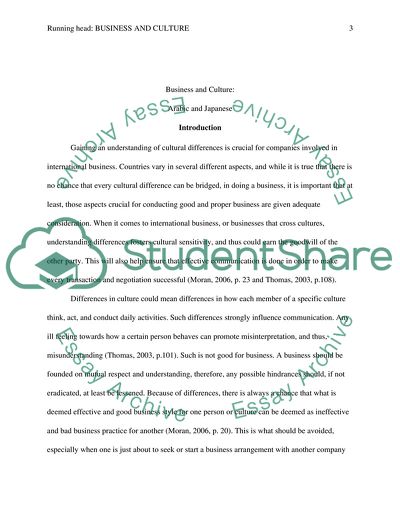Cite this document
(Business and Culture - Arabic and Japanese Research Paper, n.d.)
Business and Culture - Arabic and Japanese Research Paper. Retrieved from https://studentshare.org/social-science/1778540-learn-about-japanese-culture
Business and Culture - Arabic and Japanese Research Paper. Retrieved from https://studentshare.org/social-science/1778540-learn-about-japanese-culture
(Business and Culture - Arabic and Japanese Research Paper)
Business and Culture - Arabic and Japanese Research Paper. https://studentshare.org/social-science/1778540-learn-about-japanese-culture.
Business and Culture - Arabic and Japanese Research Paper. https://studentshare.org/social-science/1778540-learn-about-japanese-culture.
“Business and Culture - Arabic and Japanese Research Paper”, n.d. https://studentshare.org/social-science/1778540-learn-about-japanese-culture.


